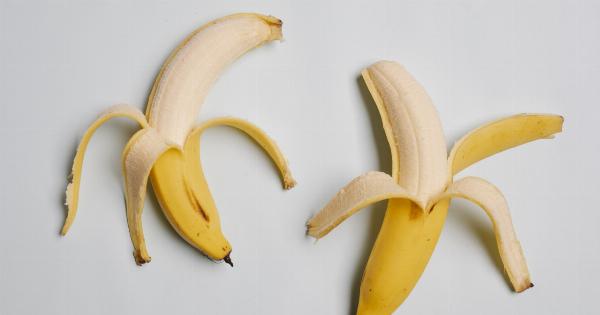Eating a healthy and balanced diet is not only important for your overall well-being but also for the health of your skin. Your face can indicate the state of your internal health and what you eat can have a significant impact on how your skin looks.
Various dietary deficiencies can cause skin problems, and by eating certain types of food, you can improve your skin health and achieve a glowing complexion.
Vitamin A Deficiency
Vitamin A is essential for skin health since it helps to keep your skin cells healthy and maintain its protective barrier. A deficiency in vitamin A can lead to dry, flaky, and dull skin.
Moreover, a lack of vitamin A can also cause acne and increase susceptibility to skin infections.
You can consume vitamin A from animal-derived foods, including liver, egg yolks, and dairy products. Alternatively, you can opt for plant-sources such as sweet potatoes, carrots, spinach, and cantaloupe.
These foods contain carotenoids, which our body can convert into Vitamin A.
Vitamin C Deficiency
Vitamin C is a vital nutrient that plays a crucial role in collagen synthesis, the protein that keeps our skin looking youthful and firm.
A deficiency in vitamin C can lead to dull, dry, and rough skin, with fine lines and wrinkles showing up faster than usual.
Citrus fruits such as oranges, grapefruits, and limes are excellent sources of vitamin C. You can also find this critical nutrient in leafy greens, tomatoes, and bell peppers.
A diet rich in vitamin C can help to slow down the aging process by reducing the appearance of wrinkles and fine lines.
Vitamin E Deficiency
Vitamin E is an essential antioxidant that helps to neutralize free radicals produced in our body. It protects our skin from oxidative stress and helps to maintain healthy skin cells.
A deficiency of vitamin E can cause dry, itchy, and flaky skin, with increased vulnerability to sun damage and aging.
You can obtain vitamin E from nuts such as almonds, hazelnuts, and peanuts, and seeds such as sunflower seeds and pumpkin seeds. Additionally, leafy greens, wheat germ, and avocado are excellent sources of this potent antioxidant.
Vitamin D Deficiency
Vitamin D is a crucial nutrient that our skin produces when exposed to sunlight. It is essential for our skin health since it helps to absorb calcium, which maintains healthy bones.
Additionally, a deficiency of vitamin D can lead to psoriasis, eczema, and other skin disorders.
The best source of vitamin D is sunlight, and it is recommended that an individual should spend 20-30 minutes in the sun each day to meet their daily vitamin D requirements.
If you are unable to get enough vitamin D from sunlight, you can consume it from oily fish such as salmon, mackerel, and sardine, or fortified foods such as milk and breakfast cereals.
Zinc Deficiency
Zinc is an essential mineral that helps to maintain healthy skin cells and promotes collagen synthesis. A deficiency of zinc can cause acne, dry, and dull skin with premature wrinkles and other skin conditions such as eczema and psoriasis.
Shellfish, red meat, and poultry are excellent sources of zinc. You can also find this mineral in nuts, seeds, and whole grains.
Eating a diet rich in zinc can help to reduce the severity of acne and other skin disorders, while promoting healthy skin cells.
B-Complex Vitamins Deficiency
The B-complex vitamins, including biotin, niacin, riboflavin, and thiamine, are crucial for skin health. These vitamins help to maintain healthy skin cells, improve skin hydration, and prevent skin inflammation.
A deficiency in these vitamins can cause dull, dry, and flaky skin.
Consuming whole grains, nuts, seeds, and leafy greens such as spinach and kale can help provide your body with B-complex vitamins. Additionally, egg yolks and dairy products can also be excellent sources of these essential vitamins.
Iron Deficiency
Iron is an important mineral that plays a crucial role in transporting oxygen to cells throughout your body. A deficiency in iron can cause pale and dull skin with dark circles under your eyes. It can also make you more prone to bruising.
If you’re looking to increase your iron intake, red meat, poultry, seafood, and leafy greens such as spinach and kale are excellent choices. Additionally, you can find iron in dried fruits, beans, and fortified cereals.
Eating a diet rich in iron can help to increase your energy levels, improve your skin tone, and reduce dark circles under your eyes.
Magnesium Deficiency
Magnesium is an important mineral that helps to maintain healthy skin cells and prevent skin inflammation. A deficiency in magnesium can cause skin dryness, itchiness, and inflammation.
Nuts such as almonds, cashews, and peanuts are excellent sources of magnesium. Additionally, you can find magnesium in legumes, leafy greens, and whole grains.
Increasing your magnesium intake can help to improve your skin barrier function, reduce inflammation, and promote healthy skin cells.
Selenium Deficiency
Selenium is an essential mineral that plays a vital role in protecting our skin from damage caused by free radicals and UV radiation. A deficiency in selenium can cause premature aging, dry skin, and skin cancer.
If you’re looking to increase your selenium intake, nuts such as Brazil nuts, cereal, and whole grains are excellent sources. Additionally, seafood such as tuna, halibut, and shrimp can also provide you with selenium.
Eating a diet rich in selenium can help to protect your skin from premature aging and reduce your risk of skin cancer.
Conclusion
By maintaining a balanced and healthy diet rich in essential nutrients, you can improve your skin health and achieve a glowing complexion.
By addressing and correcting dietary deficiencies, you can reduce the risk of skin disorders and slow down the aging process.





























